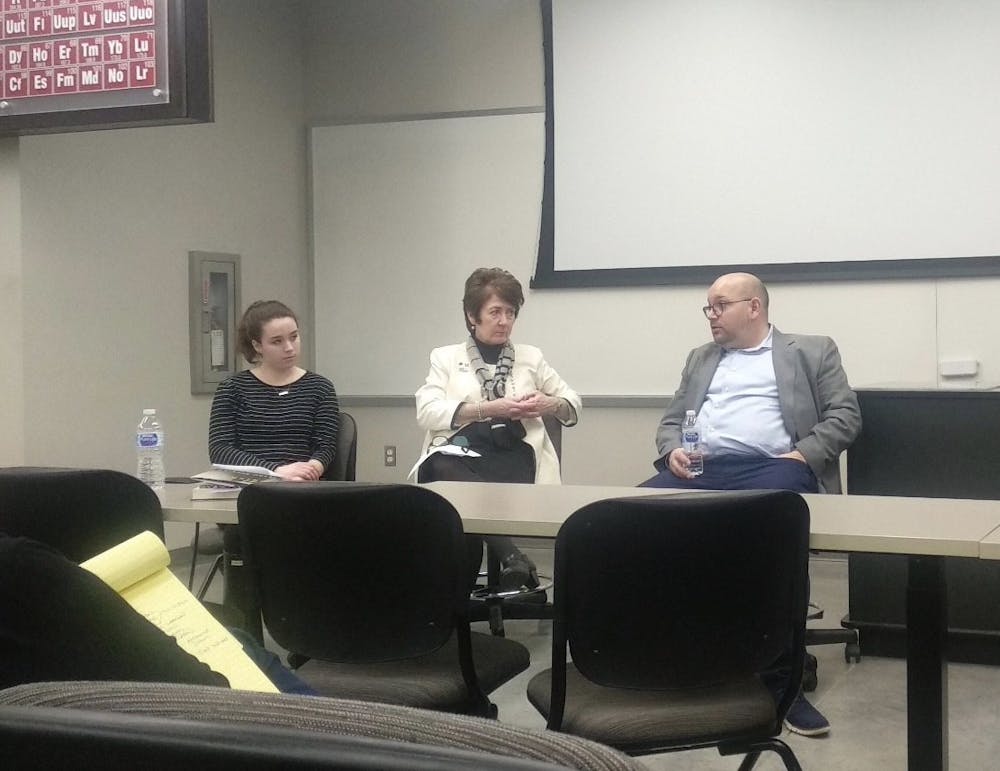In the final few days of his 544-days-long stay in imprisonment in Iran, former Tehran bureau chief for The Washington Post Jason Rezaian was asked if he would like a plane ride back home from Amazon chief executive Jeff Bezos.
“Four days earlier I could not go to the bathroom whenever I wanted to,” Rezaian said, “Now, I was asked if I wanted a lift from the richest man in the world!”
Rezaian spoke on Tuesday, March 3 at Miami University and the Oxford Lane Library. At the programs, he shared his experiences being imprisoned in Iran, promoting his book “Prisoner: My 544 Days in an Iranian Prison — Solitary Confinement, a Sham Trial, High-Stakes Diplomacy and the Extraordinary Efforts It Took to Get Me Out.”
Rezaian was arrested on July 22, 2014. He said the only reason for the arrest, was that he was an American citizen working as a correspondent in Iran for The Washington Post. He was convicted of espionage in a closed-door trial in Iran, being released later as a part of the prisoner exchange deal in Jan. 2016 when seven Iranian convicts were released by the US while four Americans of Iranian descent were freed from prisons in Iran.
At the time, the negotiations going on between the U.S. and Iran in 2014 were not completely popular in Iran too. Rezaian said that the Islamic Revolutionary Guard Corps (IRGC), which had detained him did not support the negotiations.
As a result, Rezaian, along with his wife, were kidnapped from their apartment in Tehran in 2014 by a group of three masked men. He said that the men rummaged through their apartment looking for evidence that he was working for the U.S. government. “They even tore apart our tea bags,” the former Tehran correspondent said.
Rezaian was first held in solitary confinement then transferred to a cell in the prison in 2014. He said that his mental health was affected by his time at the prison.
“I still cannot have people walking behind me since most of the interrogations were done blindfolded from behind,” he said.
He also emphasized the need for news organizations’ active role in ensuring the safety of their international reporters.
“For instance, the news organizations should have some mechanism in place to be exercised in case of arrest,” he said. He stressed that journalists should be immune to acts of crime and terrorism.
Rezaian’s mother, Mary Rezaian, recently moved to Oxford and made his visit possible. Rezaian currently works as a global opinion writer for The Washington Post.




